The Knight of the Rose is a film of genre Drama directed by Robert Wiene with Michael Bohnen
The Knight of the Rose (1925)

If you like this film, let us know!
Directed by Robert Wiene
Rating60%










Der Rosenkavalier is a 1926 Austrian silent film of the opera of the same name by Richard Strauss (music) and Hugo von Hofmannsthal (libretto). Directed by Robert Wiene, it premiered on 10 January 1926 at the Dresden Semperoper, which had also hosted the actual opera's premiere 15 years earlier. Hofmannstahl considerably changed the storyline for the film version (which included a final scene in the formal gardens behind the Field Marshal's residence) and Strauss; score included music not only from the opera but also sections of his Couperin Suite and a march for the Field Marshal, who appears in this version.
The music during the film's performances was provided by an orchestra. At the premiere, this was conducted by Richard Strauss himself. The film's projection speed had to be adjusted by the projector in order to fit the speed of the orchestra. This task fell to the film's camerman, Hans Androschin, because only he knew the exact length of each scene and cut. In later performances, a special recording, also conducted by Strauss, provided the music. A planned tour of the United States in 1927 by Strauss and his orchestra failed to go ahead because of the emergence of sound films.
Strauss conducted the Vienna and London premieres (and recorded excerpts from the film score on the Victrola label at that time). The American premiere took place at Yale University's Woolsey Hall with the Yale Symphony conducted by John Mauceri (who received special permission from Strauss' son) on March 29, 1974. A copy of the film was found in the Czech National Archive and Mr. Mauceri translated the titles with Glenn Most into English. The final sequence was missing from the print and was performed with orchestral music and titles alone. The score and parts were held by the Library of Congress. The audience at Yale included the famed Strauss soprano Maria Jeritza, who was living in New jersey at the time.
Synopsis
À la cour d'Autriche, un mariage se profile entre le baron Ochs et la fille d'un riche marchand. Comme la coutume l'exige, le baron doit trouver quelqu'un qui apporte à la jeune femme une rose d'argent pour lui signifier sa demande. Son amie la Maréchale l'incite à désigner Octavian Rofrano, qui n'est autre que son jeune amant.Actors

Michael Bohnen
(Baron Ochs auf Lerchenau)

Paul Hartmann
(Der Marschall)
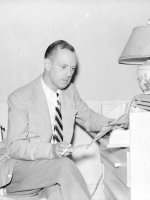
Jaque-Catelain
(Octavian)

Friedrich Feher
(Valzacchi)
Comments
Leave comment :
Suggestions of similar film to The Knight of the Rose
There are 73 films with the same actors, 43 films with the same director, 88789 with the same cinematographic genres (including 817 with exactly the same 3 genres than The Knight of the Rose), 6745 films with the same themes (including 110 films with the same 3 themes than The Knight of the Rose), to have finally 70 suggestions of similar films.If you liked The Knight of the Rose, you will probably like those similar films :
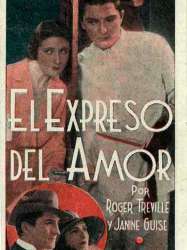
Venetian Nights (1931)
Directed by Pierre Billon, Robert Wiene, Pierre Billon
Genres Comedy, Musical
Themes Films about music and musicians, Transport films, Rail transport films, Musical films, Operetta films
Actors Max Maxudian, Florelle, Janine Guise, Lucien Callamand, Pierre Nay
After winning a cash prize in a contest a young woman decides to visit Venice. She hires a secretary, a wealthy young man in disguise, to accompany her on the holiday. Once in Italy she attracts several suitors but her real love is her secretary. When she discovers he has deceived her she returns to Berlin on the express and he pursues her to try and declare his love.

The Love Express (1931)
, 1h25Directed by Robert Wiene
Genres Comedy, Musical
Themes Films about music and musicians, Transport films, Rail transport films, Musical films, Operetta films
Actors Georg Alexander, Angelo Ferrari, Therese Giehse
Rating28%





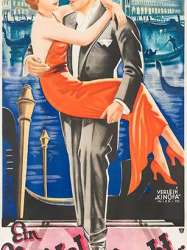
A Night in Venice (1934)
, 1h22Directed by Robert Wiene
Genres Comedy, Musical, Romance
Themes Films about music and musicians, Musical films, Operetta films
Actors Tino Pattiera, Ludwig Stössel, Oskar Sima
Rating28%






The Hands of Orlac (1924)
, 1h53Directed by Robert Wiene
Origin Austria
Genres Drama, Science fiction, Thriller, Fantasy, Horror, Crime
Themes Films about music and musicians, Piano
Actors Conrad Veidt, Fritz Kortner
Rating69%





Concert pianist Paul Orlac (Conrad Veidt) loses his hands in a horrible railway accident. His wife Yvonne (Alexandra Sorina) pleads with a surgeon to try and save Orlac’s hands. The surgeon transplants the hands of a recently executed murderer named Vasseur. When Orlac learns this, horror obsesses him. He is tortured by the presence of a knife he finds at his house, just like that used by Vasseur, and the desire to kill. He believes that along with the hands he has acquired the murderer's predisposition to violence. He confronts the surgeon, telling him to remove the hands, but the surgeon tries to convince him that a person’s acts are not governed by hands, but by the head and heart.

Victoria and Her Hussar (1931)
Directed by Richard Oswald
Genres Musical
Themes Films about music and musicians, Prison films, Musical films, Political films, Films based on operas, Operetta films
Actors Michael Bohnen, Iván Petrovich, Gretl Theimer, Ernő Verebes, Julius Falkenstein, Gyula Szöreghy
Rating56%





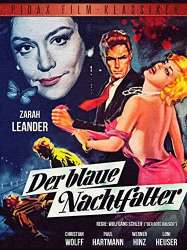
The Blue Moth (1959)
Genres Drama
Themes Films about music and musicians, Musical films
Actors Zarah Leander, Christian Wolff, Werner Hinz, Loni Heuser, Paul Hartmann, Hans Richter
Rating65%





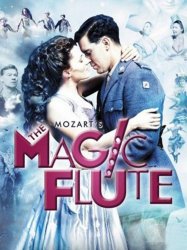
The Magic Flute (2006)
, 2h13Directed by Kenneth Branagh
Origin France
Genres Drama, Comedy, Musical theatre, Musical
Themes Films about magic and magicians, Films about music and musicians, Musical films, Films based on operas
Actors Derrick O'Connor, Liz Smith, Brendan Patricks, Jimmy Yuill, Christopher Fosh
Rating64%





La Reine de la nuit demande au prince Tamino de retrouver sa fille Pamina, qui a été enlevée par un prêtre nommé Sarastro. Le prince part avec Papageno, un oiseleur. Lorsqu'ils retrouvent la princesse, ils découvrent que la situation n'est pas aussi tranchée que le disait la reine. Sarastro accepte l'union de Tamino et Pamina à condition qu'ils réussissent chacun leur parcours initiatique.
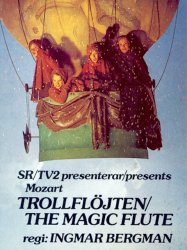
The Magic Flute (1975)
, 2h15Directed by Ingmar Bergman
Origin Suede
Genres Drama, Science fiction, Comedy, Fantasy, Musical, Romance
Themes Films about magic and magicians, Films about music and musicians, Musical films, Films based on operas
Actors Ingmar Bergman, Jane Darling, Erland Josephson, Birgit Nordin, Sven Nykvist, Liv Ullmann
Rating73%





La Reine de la nuit demande au prince Tamino de retrouver sa fille Pamina, qui a été enlevée par un prêtre nommé Sarastro. Le prince part avec Papageno, un oiseleur. Lorsqu'ils retrouvent la princesse, ils découvrent que la situation n'est pas aussi tranchée que le disait la reine. Sarastro accepte l'union de Tamino et Pamina à condition qu'ils réussissent chacun leur parcours initiatique.

Aria (1987)
, 1h30Directed by Derek Jarman, Charles Sturridge, Robert Altman, Nicolas Roeg, Julien Temple, Jean-Luc Godard, Bruce Beresford, Franc Roddam, Ken Russell, Bill Bryden
Origin United-kingdom
Genres Drama, Comedy, Anthology film, Musical, Romance
Themes Films about music and musicians, Musical films, Films based on operas
Actors Theresa Russell, Beverly D'Angelo, Elizabeth Hurley, Buck Henry, Bridget Fonda, John Hurt
Rating57%





De grands airs d'opéra vus par dix réalisateurs sur des musiques de Charpentier, Korngold, Leoncavallo, Lully, Puccini, Rameau, Verdi, Wagner. L'image est parfois sans rapport avec le thème de l'opéra, d'autres fois plus proche.
 , 1h41
, 1h41Directed by David Butler
Origin USA
Genres Drama, Comedy, Musical theatre, Musical, Romance
Themes Films about music and musicians, Musical films
Actors Doris Day, Gordon MacRae, Mary Wickes, Leon Ames, Rosemary DeCamp, Billy Gray
Rating69%





By the Light of the Silvery Moon relates the further adventures of the Winfield family in small town Indiana as daughter Marjorie Winfield's (Doris Day) boyfriend, William Sherman (Gordon MacRae), returns from the Army after World War I. Bill and Marjorie's on-again, off-again romance provides the backdrop for other family crises, caused mainly by son Wesley's (Billy Gray) wild imagination.
 Connection
Connection